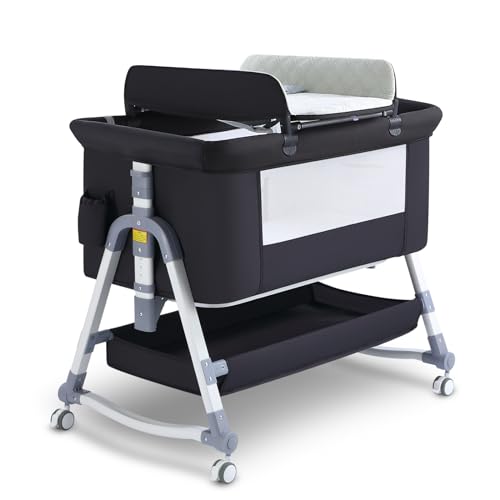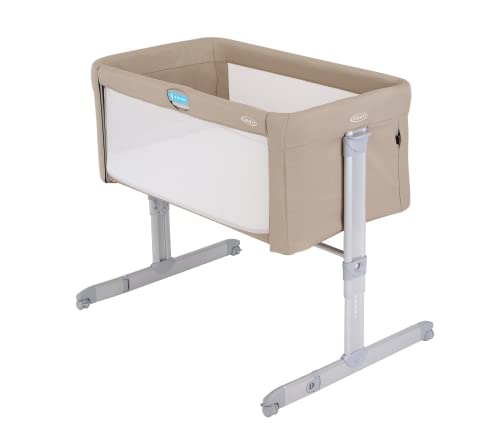Baby Cot Bed Explained In Less Than 140 Characters
페이지 정보

본문

The Ultimate Guide to Choosing a Baby Cot Bed: Safety, Features, and More
When it comes to welcoming a brand-new baby, one of the most crucial purchases parents will make is a baby cot bed. This necessary furniture piece is not just where a baby will sleep; it's also an area of comfort, safety, and security. Provided the wide range of alternatives offered on the market today, making an informed decision can be overwhelming. This guide intends to simplify the procedure by covering important features, safety requirements, kinds of cot beds, and a lot more.
Table of Contents
- Intro
- What is a Baby Cot Bed?
- Security Standards
- Kinds Of Baby Cot Beds
- 4.1 Traditional Cots
- 4.2 Convertible Cot Beds
- 4.3 Portable Cots
- Secret Features to Consider
- Choosing the Right Mattress
- Setting Up the Cot Bed
- Frequently asked questions
- Conclusion
1. Intro
A baby cot bed functions as a dedicated sleeping area for infants and is designed to supply convenience and security. As new moms and dads browse the various choices readily available, it is essential to understand the different types of cot beds, security standards, and vital features to make the best choice.
2. What is a Baby Cot Bed?
A baby cot bed is a customized furniture piece where infants sleep. Unlike regular beds, cot beds are specifically created for infants and supply a safe environment for them to rest. They usually include high sides to prevent children from falling out and often come with adjustable mattress heights to accommodate a growing child.
3. Safety Standards
When choosing a baby cot bed, safety needs to be the foremost consideration. Here are some critical security standards to remember:
- Certification: Ensure the cot bed fulfills nationwide and international security requirements, such as the ASTM International and Consumer Product Safety Commission (CPSC) policies.
- Slat Spacing: The range in between slats must not surpass 2 3/8 inches to avoid the baby's head from slipping through.
- Stability: Ensure that the cot bed does not wobble or shake.
- Non-Toxic Materials: Check for non-toxic finishes and products to make sure the baby's security.
4. Kinds Of Baby Cot Beds
The market offers various kinds of cot beds, each catering to various needs. Below is an outline of the most common types:
4.1 Traditional Cots
Standard cots are standalone furnishings items created particularly for babies. They generally come with repaired sides and multiple adjustable bed mattress heights.
4.2 Convertible Cot Beds
Convertible cot beds can be changed into toddler beds, permitting extended use. This type is a cost-effective option as it grows with your child.
4.3 Portable Cots
Portable cots, likewise known as travel cots or playards, are lightweight and designed for families on the go. They can be quickly assembled and dismantled for travel.
5. Key Features to Consider
When choosing a cot bed, parents ought to think about the following features:
- Adjustable Mattress Height: This function permits reducing the bed mattress as the baby grows, making it simpler for parents to raise the kid.
- Material Quality: Look for a cot bed made from durable, non-toxic wood.
- Safety Features: Some cot beds include rounded edges and extra security locking mechanisms.
- Reduce of Assembly: Great crib Check if the cot bed needs minimal tools for assembly and how easy it is to take apart.
- Storage Options: Some cot beds feature integrated drawers for keeping baby essentials.
6. Choosing the Right Mattress
The best bed mattress is crucial for your baby's sleep quality. Here are some pointers for picking a suitable mattress:
- Firmness: A mattress must be firm adequate to avoid the baby from sinking in unfathomable, minimizing the danger of suffocation.
- Breathability: Opt for breathable products to make sure correct air circulation.
- Water-Resistance: Consider water resistant covers for simple cleaning and hygiene.
7. Setting Up the Cot Bed
Installing the cot bed correctly is essential for security. Here are steps parents ought to follow:
- Choose the Right Location: Place the cot bed far from windows, cables, and other possible dangers.
- Inspect the Height: Adjust the mattress height based upon the kid's age and movement.
- Remove Extras: Avoid positioning pillows, blankets, or packed toys inside the cot bed when the baby is sleeping.
- Check Regularly: Regularly inspect all parts and screws for wear and tear.
8. FAQs
Q1: At what age should a baby transition from a cot to a bed?
Many kids shift to a young child bed between 18 months to 3 years, depending on their advancement and private requirements.
Q2: How can I guarantee my baby sleeps securely in their cot bed?
Make sure the cot is free of soft bedding, toys, and anything that might obstruct the baby's breathing. Follow all safety standards thoroughly.
Q3: Is it needed to have a separate nursery for the cot bed?
While many moms and dads select to have a different nursery, it is not a requirement. As long as the cot bed remains in a safe and quiet environment, it can be placed in the parents' bed room.
Q4: When is it safe to lower the bed mattress?
Typically, the bed mattress needs to be reduced when the baby can pull themselves up or when they can sit individually, typically around 6 months.

9. Conclusion
Picking the ideal baby cot bed is an essential aspect of getting ready for a new arrival. Parents ought to focus on security, performance, and quality, making sure that the cot bed satisfies their household's special requirements. By taking the time to research study and comprehend different types of cot beds, parents can offer a safe and comfy sleeping environment for their youngster to thrive.
With careful consideration, moms and dads can make sure that the cot bed is not just a piece of furnishings, but a sanctuary where their baby can sleep comfortably during those vital early years.
- 이전글경주 성기능 개선제 25.07.27
- 다음글비아그라 16정+16정 - 골드비아 25.07.27
댓글목록
등록된 댓글이 없습니다.
